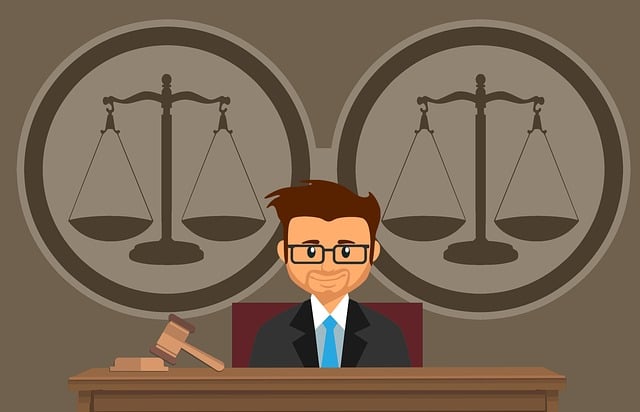Fraudulent practices in the digital age pose significant threats, with criminals employing scams and accounting fraud. Antitrust Enforcement Trends are crucial in countering these schemes, as regulatory bodies use advanced analytics to identify and penalize deceptive entities. This proactive approach safeguards against financial losses, restores public trust in digital markets, and benefits criminal defense attorneys navigating complex legal issues. Key trends include leveraging machine learning for fraud detection, international collaboration, stricter regulations, and technology partnerships to combat white-collar crimes, fostering a safer online environment for all participants.
Fraudulent financial practices pose a significant threat to digital markets, eroding trust and undermining economic stability. This comprehensive guide delves into understanding various forms of financial fraud, with a particular focus on antitrust enforcement as a powerful tool against malicious activities. We explore current trends in detecting and preventing digital market fraud, highlighting successful case studies. Additionally, we provide insights into the future outlook, emphasizing enhanced antitrust measures to safeguard online transactions in an ever-evolving digital landscape.
- Understanding Fraudulent Financial Practices: A Comprehensive Overview
- The Role of Antitrust Enforcement in Digital Markets
- Emerging Trends in Detecting and Preventing Digital Market Fraud
- Case Studies: Successful Enforcements Against Fraudulent Entities
- Future Outlook: Enhancing Antitrust Measures for Online Transactions
Understanding Fraudulent Financial Practices: A Comprehensive Overview

Fraudulent financial practices are a growing concern in today’s digital age, where complex financial transactions occur at an unprecedented pace. Understanding these schemes is paramount for both corporate and individual clients seeking to protect their interests. From sophisticated phishing scams to intricate accounting fraud, criminals employ various tactics to exploit vulnerabilities in the financial system. These activities not only result in significant financial losses but also erode public trust in digital markets.
Antitrust enforcement trends play a crucial role in combating fraudulent practices. Regulatory bodies are increasingly focusing on identifying and penalizing entities involved in deceitful behaviors, especially in the fast-evolving digital landscape. By leveraging advanced analytics and data-driven strategies, law enforcement agencies can uncover intricate financial crimes. This proactive approach ensures that businesses operate transparently and ethically, fostering a more robust and secure digital market environment for all participants, including general criminal defense attorneys who assist both corporate and individual clients navigating these complex legal issues.
The Role of Antitrust Enforcement in Digital Markets

In the rapidly evolving digital landscape, antitrust enforcement trends in digital markets have become a focal point for regulators worldwide. The unique characteristics of digital platforms, such as network effects and data-driven business models, present new challenges for maintaining fair competition. Modern antitrust laws are increasingly being leveraged to address anti-competitive behaviors like market manipulation, data exploitation, and platform abuse. High-stakes cases involving tech giants have brought these issues into the spotlight, pushing regulators to adapt their strategies.
Effective antitrust enforcement involves a comprehensive approach, encompassing all stages of the investigative and enforcement process. From initial market analysis and evidence collection to complex jury trials, each step demands meticulous attention to detail and adherence to legal precedents. By holding wrongdoers accountable, these efforts aim to deter future anti-competitive practices while promoting innovation and consumer welfare in digital markets.
Emerging Trends in Detecting and Preventing Digital Market Fraud

The digital age has brought unprecedented opportunities but also introduced new challenges, particularly in the realm of financial fraud. Emerging trends in detecting and preventing digital market fraud are reshaping how we approach this complex issue. One notable development is the increased reliance on advanced analytics and machine learning algorithms to identify suspicious patterns and anomalies. These technologies are becoming powerful tools for antitrust enforcement trends in digital markets, enabling regulators to uncover intricate fraudulent networks more efficiently.
Moreover, the collaboration between technology companies, law enforcement agencies, and the philanthropic and political communities is fostering a multi-faceted approach. By sharing data and insights, these respective business stakeholders are enhancing the fight against white collar and economic crimes. This collaborative effort not only strengthens fraud prevention strategies but also sends a strong message that digital market integrity is a shared responsibility, crucial for maintaining public trust in an increasingly online world.
Case Studies: Successful Enforcements Against Fraudulent Entities

In recent years, the digital market landscape has witnessed a surge in fraudulent activities, prompting a closer look at antitrust enforcement trends. One notable aspect is the increased focus on white-collar and economic crimes, as authorities across the country recognize their impact on both consumers and the overall economy. Case studies of successful enforcements against fraudulent entities offer a glimmer of hope in this battle.
For instance, notable achievements include breaking up cartels that manipulated online search results, leading to record settlements and a significant shift in antitrust enforcement trends within digital markets. These cases demonstrate an unprecedented track record of holding culpable parties accountable for their actions. By leveraging advanced investigative techniques and data analytics, law enforcement agencies are better equipped to uncover complex schemes, ensuring a more robust and resilient digital environment.
Future Outlook: Enhancing Antitrust Measures for Online Transactions

As online transactions continue to dominate global commerce, the future outlook for fraudulent financial practices demands a robust Antitrust Enforcement Trends in Digital Markets approach. The rise of e-commerce and digital platforms has opened new avenues for white collar and economic crimes, as bad actors exploit the anonymity and complexity of these markets. To combat this, regulatory bodies and law enforcement agencies must enhance their strategies to keep up with evolving schemes.
Focusing on Antitrust Enforcement Trends in Digital Markets, we see a shift towards more stringent regulations and increased collaboration between global bodies. This collaborative effort aims to target not only corporate entities but also individual clients involved in fraudulent activities, disrupting the networks that support such illicit transactions. Furthermore, by engaging philanthropic and political communities, there’s an emerging trend of using technology to trace and prevent economic crimes, ensuring a safer digital landscape for all participants, regardless of their backgrounds or affiliations.
In conclusion, fraudulent financial practices pose significant challenges in digital markets. However, with a comprehensive understanding of these schemes and the strategic deployment of antitrust enforcement, we can effectively combat emerging trends. The case studies presented highlight successful efforts to hold malicious entities accountable, demonstrating the power of robust legal measures. Moving forward, enhancing antitrust regulations tailored for online transactions will be crucial in ensuring fair and secure digital market places, thus protecting consumers and fostering economic growth.






